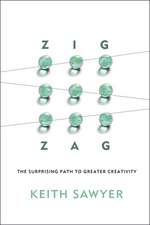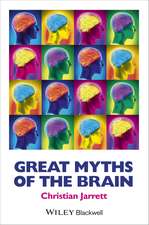Psychology of Learning and Motivation: Moral Judgment and Decision Making: Psychology of Learning and Motivation, cartea 50
Brian H. Ross Daniel Bartels, Christopher Bauman, Linda Skitka, Douglas L. Medinen Limba Engleză Hardback – 8 feb 2009
The first two chapters discuss the role of mental representation in moral judgment and reasoning. Sloman, Fernbach, and Ewing argue that causal models are the canonical representational medium underlying moral reasoning, and Mikhail offers an account that makes use of linguistic structures and implicates legal concepts. Bilz and Nadler follow with a discussion of the ways in which laws, which are typically construed in terms of affecting behavior, exert an influence on moral attitudes, cognition, and emotions.
Baron and Ritov follow with a discussion of how people's moral cognition is often driven by law-like rules that forbid actions and suggest that value-driven judgment is relatively less concerned by the consequences of those actions than some normative standards would prescribe. Iliev et al. argue that moral cognition makes use of both rules and consequences, and review a number of laboratory studies that suggest that values influence what captures our attention, and that attention is a powerful determinant of judgment and preference. Ginges follows with a discussion of how these value-related processes influence cognition and behavior outside the laboratory, in high-stakes, real-world conflicts.
Two subsequent chapters discuss further building blocks of moral cognition. Lapsley and Narvaez discuss the development of moral characters in children, and Reyna and Casillas offer a memory-based account of moral reasoning, backed up by developmental evidence. Their theoretical framework is also very relevant to the phenomena discussed in the Sloman et al., Baron and Ritov, and Iliev et al. chapters.
The final three chapters are centrally focused on the interplay of hot and cold cognition. They examine the relationship between recent empirical findings in moral psychology and accounts that rely on concepts and distinctions borrowed from normative ethics and decision theory. Connolly and Hardman focus on bridge-building between contemporary discussions in the judgment and decision making and moral judgment literatures, offering several useful methodological and theoretical critiques. Ditto, Pizarro, and Tannenbaum argue that some forms of moral judgment that appear objective and absolute on the surface are, at bottom, more about motivated reasoning in service of some desired conclusion. Finally, Bauman and Skitka argue that moral relevance is in the eye of the perceiver and emphasize an empirical approach to identifying whether people perceive a given judgment as moral or non-moral. They describe a number of behavioral implications of people's reported perception that a judgment or choice is a moral one, and in doing so, they suggest that the way in which researchers carve out the moral domain a priori might be dubious.
Din seria Psychology of Learning and Motivation
- 23%
 Preț: 443.25 lei
Preț: 443.25 lei - 23%
 Preț: 436.46 lei
Preț: 436.46 lei - 27%
 Preț: 809.31 lei
Preț: 809.31 lei - 32%
 Preț: 573.79 lei
Preț: 573.79 lei - 27%
 Preț: 884.24 lei
Preț: 884.24 lei - 27%
 Preț: 890.67 lei
Preț: 890.67 lei - 27%
 Preț: 823.27 lei
Preț: 823.27 lei - 29%
 Preț: 606.14 lei
Preț: 606.14 lei - 28%
 Preț: 577.86 lei
Preț: 577.86 lei - 23%
 Preț: 648.53 lei
Preț: 648.53 lei - 24%
 Preț: 610.13 lei
Preț: 610.13 lei - 28%
 Preț: 609.35 lei
Preț: 609.35 lei - 9%
 Preț: 650.43 lei
Preț: 650.43 lei - 28%
 Preț: 579.58 lei
Preț: 579.58 lei - 28%
 Preț: 577.09 lei
Preț: 577.09 lei - 28%
 Preț: 578.28 lei
Preț: 578.28 lei - 9%
 Preț: 576.37 lei
Preț: 576.37 lei
Preț: 885.35 lei
Preț vechi: 1212.81 lei
-27% Nou
Puncte Express: 1328
Preț estimativ în valută:
169.41€ • 177.35$ • 140.18£
169.41€ • 177.35$ • 140.18£
Carte tipărită la comandă
Livrare economică 05-19 aprilie
Preluare comenzi: 021 569.72.76
Specificații
ISBN-13: 9780123744883
ISBN-10: 0123744881
Pagini: 384
Dimensiuni: 152 x 229 x 28 mm
Greutate: 0.64 kg
Editura: ELSEVIER SCIENCE
Seria Psychology of Learning and Motivation
ISBN-10: 0123744881
Pagini: 384
Dimensiuni: 152 x 229 x 28 mm
Greutate: 0.64 kg
Editura: ELSEVIER SCIENCE
Seria Psychology of Learning and Motivation
Public țintă
Researchers and students in cognitive psychology.Cuprins
Chapter 1
Causal Models: The Representational Infrastructure for Moral Judgment
Steven A. Sloman, Philip M. Fernbach, and Scott Ewing
Chapter 2
Moral Grammar and Intuitive Jurisprudence: A Formal Model of Unconscious Moral and Legal Knowledge
John Mikhail
Chapter 3
Law, Psychology, and Morality
Kenworthey Bilz and Janice Nadler
Chapter 4
Protected Values and Omission Bias as Deontological Judgments
Jonathan Baron and Ilana Ritov
Chapter 5
Attending to Moral Values
Rumen Iliev, Sonya Sachdeva, Daniel M. Bartels, Craig Joseph, Satoru Suzuki, and Douglas L. Medin
Chapter 6
Noninstrumental Reasoning over Sacred Values: An Indonesian Case Study
Jeremy Ginges and Scott Atran
Chapter 7
Development and Dual Processes in Moral Reasoning: A Fuzzy-trace Theory Approach
Valerie F. Reyna and Wanda Casillas
Chapter 8
Moral Identity, Moral Functioning, and the Development of Moral Character
Darcia Narvaez and Daniel K. Lapsley
Chapter 9
"Fools Rush In": A JDM Perspective on the Role of Emotions in Decisions, Moral and Otherwise
Chapter 10
Motivated Moral Reasoning
Peter H. Ditto, David A. Pizarro, and David Tannenbaum
Chapter 11
In the Mind of the Perceiver: Psychological Implications of Moral Conviction
Christopher W. Bauman and Linda J. Skitka
Causal Models: The Representational Infrastructure for Moral Judgment
Steven A. Sloman, Philip M. Fernbach, and Scott Ewing
Chapter 2
Moral Grammar and Intuitive Jurisprudence: A Formal Model of Unconscious Moral and Legal Knowledge
John Mikhail
Chapter 3
Law, Psychology, and Morality
Kenworthey Bilz and Janice Nadler
Chapter 4
Protected Values and Omission Bias as Deontological Judgments
Jonathan Baron and Ilana Ritov
Chapter 5
Attending to Moral Values
Rumen Iliev, Sonya Sachdeva, Daniel M. Bartels, Craig Joseph, Satoru Suzuki, and Douglas L. Medin
Chapter 6
Noninstrumental Reasoning over Sacred Values: An Indonesian Case Study
Jeremy Ginges and Scott Atran
Chapter 7
Development and Dual Processes in Moral Reasoning: A Fuzzy-trace Theory Approach
Valerie F. Reyna and Wanda Casillas
Chapter 8
Moral Identity, Moral Functioning, and the Development of Moral Character
Darcia Narvaez and Daniel K. Lapsley
Chapter 9
"Fools Rush In": A JDM Perspective on the Role of Emotions in Decisions, Moral and Otherwise
Chapter 10
Motivated Moral Reasoning
Peter H. Ditto, David A. Pizarro, and David Tannenbaum
Chapter 11
In the Mind of the Perceiver: Psychological Implications of Moral Conviction
Christopher W. Bauman and Linda J. Skitka

















